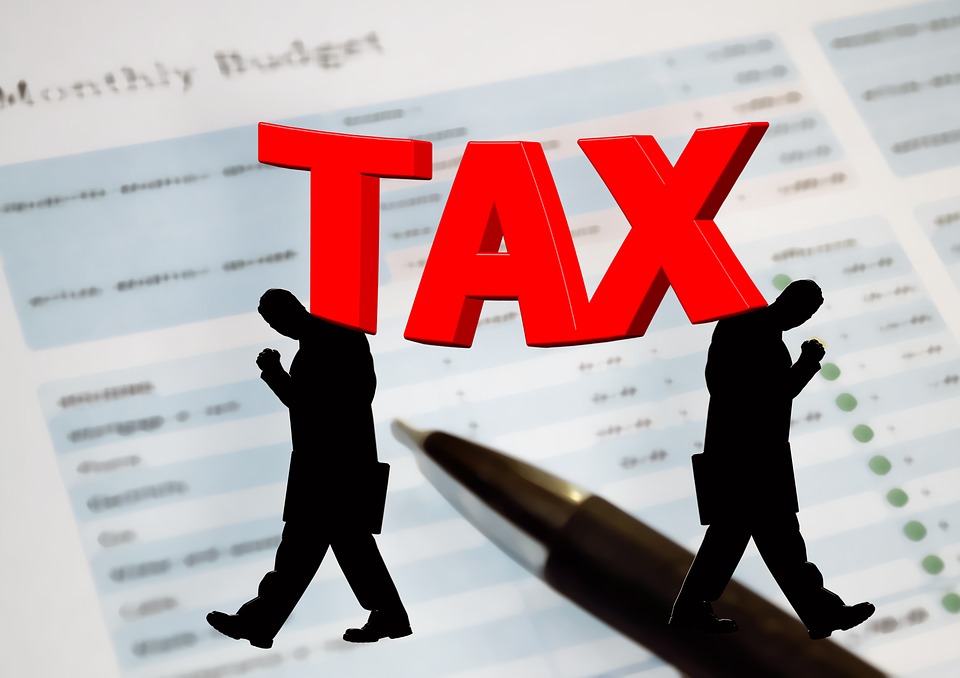latest
Massachusetts Budget and Policy Center: Raise taxes as part of state budget fix

By Colin A. Young
(SEPT. 29, 2020) With difficult and potentially painful budget decisions looming on Beacon Hill’s horizon, one prominent state finance think tank says lawmakers should give serious thought to raising taxes to help plug budget gaps, rather than borrowing money to help close the expected shortfalls.
In a report published Tuesday, the left-leaning Massachusetts Budget and Policy Center argues that policymakers can maintain state spending on public services and programs despite the devastating financial impacts of the COVID-19 pandemic if they limit deficit financing, tap into the state’s $3.5 billion reserves and adopt “new policies to increase revenue.”
“Collecting additional progressive taxes to protect Massachusetts public spending against cuts will advance economic recovery by ensuring that more funds will be spent now on goods and services in Massachusetts. This is a clear lesson from the Great Recession,” Phineas Baxandall, MassBudget’s senior policy analyst who wrote the report, said. “A 2015 study by the Congressional Budget Office examining the Great Recession found taxes have a net positive impact on the economy when they are used to support public spending during a recession. For every additional dollar of revenue raised from these taxes, economy activity drops by less than a dollar.”
Massachusetts is facing a shortfall estimated to be in the ballpark of $700 million for the fiscal year that ended June 30 and the outlook for fiscal 2021, which started July 1, has been unclear for months and the subject of much speculation. The state is operating through next month on a temporary $16.5 billion budget and recent tax collections have been unexpectedly solid.
Early in September, the Department of Revenue reported that state tax collections were running $124 million or more than 3 percent ahead of their pace one year ago, a potentially promising sign given predictions that receipts are expected to collapse this fiscal year.
In April, forecasters told lawmakers to anticipate fiscal 2021 collections would tumble by between $4 billion and $6 billion, but an updated projection produced earlier this month for the News Service by the Center for State Policy Analysis at Tufts University suggests a nearly $1.6 billion reduction in anticipated tax revenues.
Last week, Gov. Charlie Baker said Massachusetts should be able to close out fiscal 2020 and manage through fiscal 2021, but he was concerned about where Massachusetts would be financially in fiscal 2022.
“Long story short the FY20 budget is going to be fine, alright,” Baker said. “Generally speaking, we think (fiscal 2021) we can work our way through. But (fiscal 2022) we believe it’s going to be important for the feds to support states and municipalities.”
MassBudget agreed with the governor’s assessment and said the combination of potential federal fiscal relief and state rainy fay fund withdrawals “may make it possible to stave off deep cuts in the FY 2021 budget,” but added that “the FY 2022 budget that begins in nine months is likely to be more difficult.”
Though MassBudget notes that short-term lines of credit can be helpful to states as they work to manage cash flow, the organization also pointed out debt assumed from short-term borrowing typically must be repaid within the fiscal year. One short-term borrowing option available to Massachusetts — a $7.86 billion credit line through the U.S. Federal Reserve’s Municipal Liquidity Fund — would have to be paid back by 2023 and carries a less-than-favorable interest rate, MassBudget said.
“Making use of these short-term lines of credit can be helpful, though to the extent that they are used, more of the Commonwealth’s revenue in the next year or two will already be committed to paying off debt and less revenue will be available to support regular budget functions,” Baxandall wrote. “Borrowing does not avert the need for new revenue to support the budget, it makes that revenue more necessary.”
MassBudget’s report did not highlight specific revenue-raising policies the organization would like to see adopted, but it has previously indicated support for options that include raising the personal income tax rate, raising the tax rate on capital gains, imposing a surtax on the sale of multi-million dollar homes, taxing large private college and university endowments, and raising various corporate tax rates.
Long-term borrowing — the most common type, in which a state borrows money to be paid back through the sale of bonds over decades — “is of little use for avoiding cuts and making new investments in the current Fiscal Year (FY) 2021 or upcoming FY 2022 budgets,” MassBudget said. Nonetheless, the group said Massachusetts should continue to pursue its usual borrowing for capital projects since those often provide a medium-term employment boost.
Most economists tend to advise against state borrowing to pay for operating costs because doing so carries the potential risk of runaway debt that forces significant spending cuts or major tax hikes.
In its report, MassBudget points to a recent analysis by the Pew Charitable Trust that noted, “Creating a long-term liability — as with bonding — to pay for immediate, short-term operating costs is generally considered unsound practice, with potentially negative credit rating implications.”
Last week, officials in New Jersey approved a fiscal 2021 budget that relies on $4.5 billion in new borrowing, makes about $1 billion in spending cuts, establishes a surtax on annual income over $1 million and eliminates the planned reduction of a corporate surcharge. New Jersey is facing a budget deficit estimated at $5.3 billion, the New York Times reported.
“It was this or a calamitous slashing of government services that would have done even more damage to families already hit hardest by the pandemic,” a senior advisor to New Jersey Gov. Phil Murphy told the Times.
Massachusetts budget managers will likely get a better handle on the state’s pocketbook next week, when the House and Senate Ways and Means committees, along with Administration and Finance Secretary Michael Heffernan, hear from a slew of economists and other experts on their updated expectations.
Senate Ways and Means Chairman Sen. Michael Rodrigues has suggested Massachusetts will have to draw “deeply” from its stabilization fund to deal with a $5 billion revenue drop this fiscal year. On Monday, Rodrigues confirmed to the News Service that his goal is to have a budget for the remainder of fiscal year 2021 on the governor’s desk by Halloween.






Liberty
September 29, 2020 at 7:36 pm
Spending whose money to advance what economic recovery? Should read; “Keeping government power and control on the working persons back”. Where are the calls for “any” cuts? When you remove the incentive of the productive by giving away the fruits of their work and toil to the unproductive you will all starve! Amazon was given a $30,000,000.00 tax break in Fall River to bring jobs, yet the local tax burden is climbing every year on the backs of these workers. What this says is let the laborer and his labor support local services while we let the corporate profiteers and their debt supported monies be tax free. Where is the risqe when corporations are playing with fake money that only exists on a balance sheet. Why isn’t this fake money used instead to plug local budgets? It’s because local budgets can’t run on fake money, only the FEDS and the Corporations can. If the States budget is unsustainable, then let it fail on current revenues. The State should implement Zero Based Budgeting instead of leaning on revenue projections that are in these times a “fantasy”. Raises to pay and benefits can no longer be guaranteed in contracts when the possibility is, that the money will likely not be there to support it.